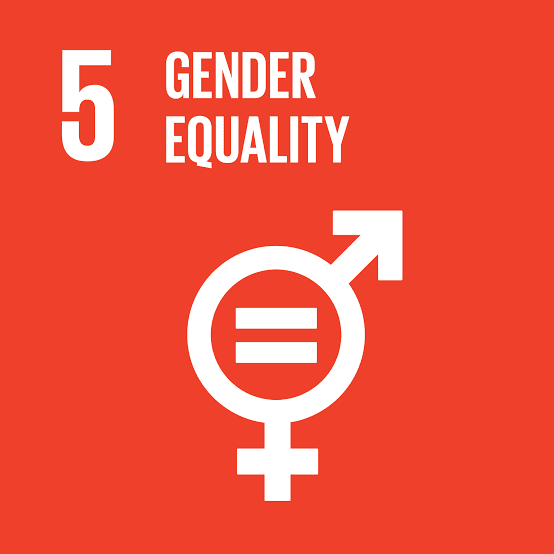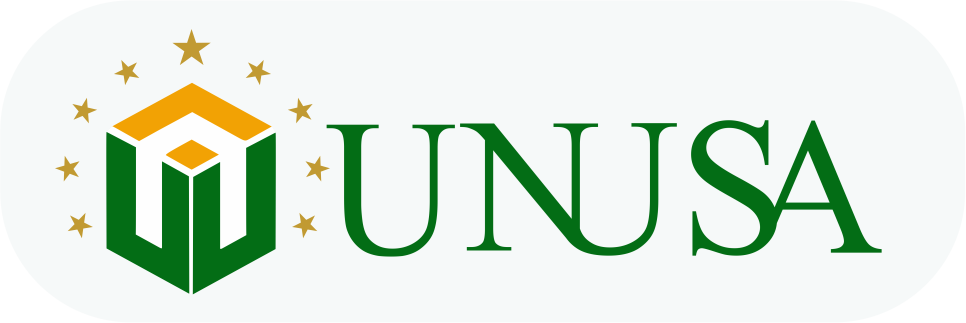5
KESETARAAN
GENDER
Mencapai Kesetaraan Gender dan Memberdayakan Kaum Perempuan
Gender Equality

Universitas Nahdlatul (Unusa) has long been dedicated to promoting gender equality by ensuring women’s access to higher education. The university has developed various strategies and policies aimed at empowering female students, enhancing their academic experience, and addressing gender disparities. Through institutional initiatives, scholarship schemes, and targeted support programs, Unusa works proactively to increase women’s participation and success in higher education, especially in disciplines where they are traditionally underrepresented. These efforts reflect Unusa commitment to advancing gender equality and empowering women to excel academically.
In line with its commitment to gender equality, Unusa continuously monitors the participation and academic progress of female students, ensuring that they have the resources and opportunities to succeed. The university fosters an environment that actively promotes women’s engagement in all fields of study, encouraging them to take on leadership roles and pursue careers in areas traditionally dominated by men. By addressing barriers and creating more inclusive opportunities, Unusa aims to help women overcome challenges and thrive in their academic journey.
Additionally, Unusa is committed to safeguarding the rights of women within the academic community. The university has implemented comprehensive policies and services that support the protection and progression of female students, faculty, and staff. These policies are designed to ensure that women are treated fairly, equitably, and with respect, free from discrimination or bias. By creating a safe and supportive environment, Unusa seeks to empower women to fully participate in the academic community without fear of prejudice or inequality.
Through these initiatives, Unusa works to build an inclusive and equitable educational environment where women can thrive academically and professionally. The university’s commitment to gender equality is part of a broader mission to foster an academic culture that values diversity, inclusion, and equal opportunity for all students and staff, regardless of gender. Unusa continuous efforts to support women in education reinforce its broader goal of contributing to a fair and just society.
Student Access and Gender Equality Measures at Universitas Islam Indonesia (UII) at Universitas Nahdlatul Ulama Surabaya (Unusa)
- Tracking Women's Application, Acceptance. and Study Completion Rates
- Policies Promoting Women's Access and Participation
- Women's Access Schemes
- Encouraging Female Applications in Underrepresented Subjects
Unusa Center for Gender Studies (PSG), established in 1997, is responsible for researching and tracking gender-related issues, including women’s application rates, acceptance, and study completion. The PSG coordinates with university leadership to monitor and assess the participation of women in higher education, helping to identify areas where women may face barriers or challenges. This ongoing research is central to promoting gender equality and addressing any gaps in female student access and success.
Unusa has been actively working on policies that promote gender equality, including the establishment of the Gender Study Center (PSG), which is dedicated to advocating for women’s empowerment and gender equality. Although PSG has faced budgetary challenges, the center continues to operate as a non-structural institution coordinating directly with the rectorate. In 2020, Unusa strategic plan emphasized sustainable innovation and gender equality, with a focus on empowering women through education and leadership opportunities. Unusa policies are under review and evolving, with input from various academic and professional disciplines, to enhance gender equality across the university.
Unusa has established mechanisms to support women’s access to education, including mentoring programs and scholarships. Through these schemes, Unusa seeks to ensure that women have the resources and support needed to succeed academically and professionally. Additionally, the Global Engagement Grant (GEG) program, launched by Unusa in 2020, includes gender equality as one of its focus areas. This initiative encourages women to pursue leadership and innovative roles within the university, helping to accelerate gender inclusivity and participation in higher education.
Unusa actively encourages female students to apply for fields where they are underrepresented, particularly in leadership and decision-making roles. The Faculty of Medicine is notable for being led by female deans, Dr. dr. Isnatin Miladiyah, M.Kes. and Dr.Phil. Qurotul Uyun, S.Psi., M.Si., setting a precedent for gender equality in faculty leadership. This unique representation at the top level of management reflects Unusa commitment to promoting women in all areas of the university, including fields traditionally dominated by men. Through targeted policies and role models like Dr. Rosita, Unusa actively supports and encourages female students to pursue degrees and careers in underrepresented disciplines.
Women’s Progress Measures at Universitas Nahdlatul Ulama Surabaya (Unusa)
- Non-Discrimination Against Women
- Maternity and Paternity Policies
- Accessible Childcare Facilities for Students
- Childcare Facilities for Staff and Faculty
- Women's Mentoring Schemes
- Tracking Women's Likelihood of Graduating
- Protection for Those Reporting Discrimination
Unusa upholds a strong commitment to gender equality through University Regulation Number 1 of 2020, which addresses the Prevention and Handling of Sexual Violence and Immoral Acts. This policy specifically includes measures to prevent discrimination against women, ensuring equal opportunities and rights for female students and staff. The regulation was passed after extensive review and aims to foster a supportive environment where women can actively participate in academic and public spaces.
Unusa recognizes the importance of supporting families and has policies that accommodate both maternity and paternity needs. These policies support women’s participation by ensuring that new mothers can balance their academic or professional responsibilities with childcare. For example, Unusa provides lactation rooms for female employees and lecturers, allowing them to continue their work while caring for their children.
Unusa offers accessible childcare services through Puskaga for employees and lecturers with children aged 0-3 years. These services allow working parents, especially women, to continue their professional responsibilities while ensuring their children’s well-being. The availability of these services helps balance work and family life, supporting women’s progression in both academia and professional settings.
In addition to childcare services for students, Unusa provides childcare services for faculty and staff. This enables employees to fulfill their roles at the university without compromising their parental duties. These services promote gender equality by helping to bridge the gap between work and family responsibilities.
Unusa has developed mentoring schemes for female students, particularly through the Ta’lim program. This mentoring scheme, which is specifically designed for first and second-year students, provides guidance and support for women in their academic journey. The program is led by female mentors, ensuring that female students have access to role models who can support their personal and academic growth.
Unusa conducts tracer studies annually through the Directorate of Career Development and Alumni to track the success of graduates, including gender-based differences in graduation rates. This data allows Unusa to identify potential disparities and implement measures to close any gaps in the graduation rates between male and female students, promoting gender equity in academic achievements.
Unusa has a disciplinary regulation under the Waqf Board that ensures the protection of individuals who report discrimination, including gender-based discrimination, in the educational or employment environment. This policy helps safeguard those who come forward with complaints, ensuring that they do not face any retaliation or disadvantage in their academic or professional progress.
